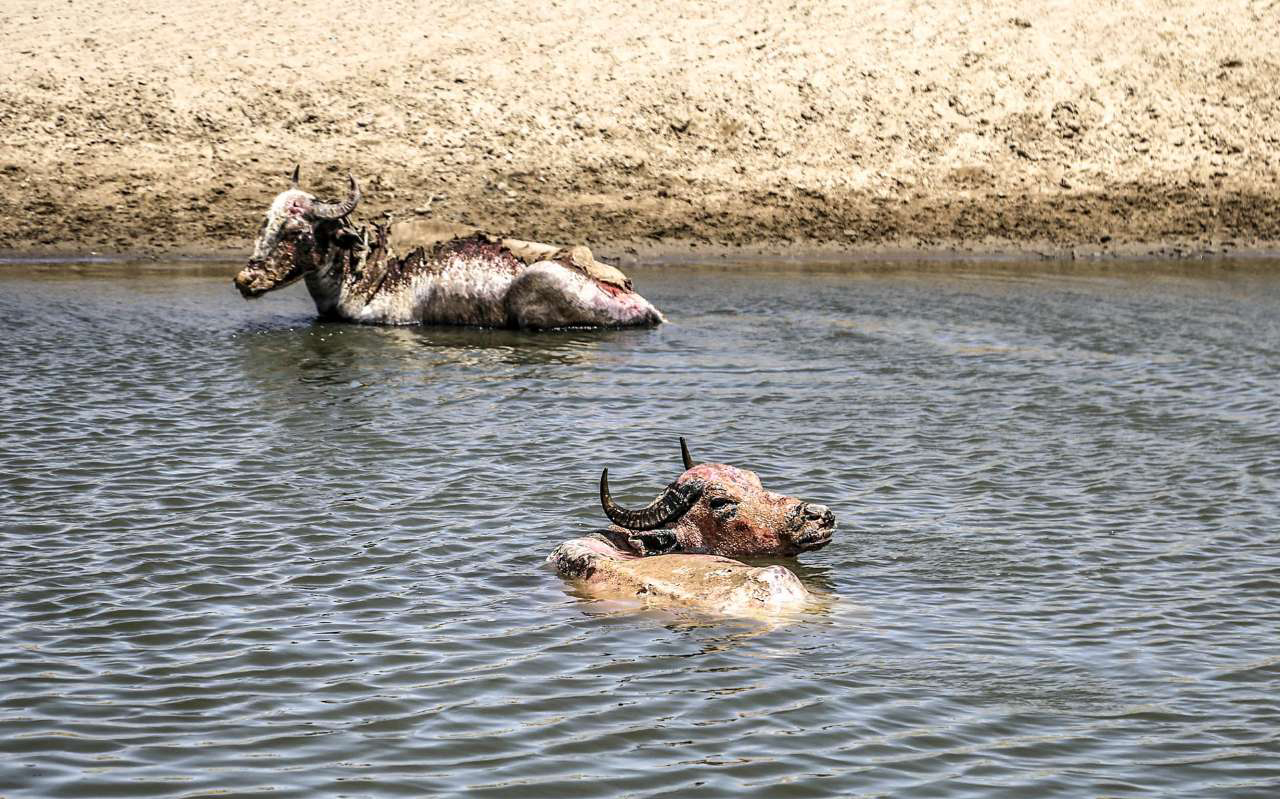Fire extinguishing equipment dispatched to the Iraqi part of Hour-al Azim Marshes have started their operations to put out the wildfire which is still burning the reeds, a senior official at the Department of Environment said. The work started on Friday, after identifying the exact location of the conflagration, Mehr News Agency quoted Ahmadreza Lahijanzadeh as saying.
The operation is co-organized by the Khuzestan Governorate, Interior Ministry, Defense Ministry, the Department of Environment and Aerospace Force of the Islamic Revolution Guards Corps. According to Kiamars Hajizadeh, director of provincial Disaster Management Organization, the operations are in progress while the temperature around the burning area has risen to 50 degrees Celsius and the sky is covered with a thick plume of smoke.
"Considering the extent of the fire, extinguishing operations are expected to last for a couple of days," he added.
Furthermore, given the technical constraints limiting the choppers' flight around the blaze, the helicopters cannot go closer than 50 km to the flames. Therefore, the fire should be put out from numerous directions.
It has been more than a week since the fire hit the marshes straddling western borders with Iraq, first burning the Iranian side but later spreading westward into Iraqi soil.
Reportedly, the blaze has been extinguished in the Iranian part of the wetland, and special equipment borrowed from a European country together with Iranian helitanks are now sent to the troubled area in Iraqi lands.
Animals in Harm's Way
The huge fire has caused health harms to a number of water buffaloes of local livestock owners.
Reportedly, the injured animals which were scorched by the raging fire are now under medical care by the provincial office of Iran Veterinary Organization. According to Mostafa Kenarkouhi, head of IVO, the animals are receiving health care free of charge and their medical treatment will continue until they fully recover and regain their productivity.
"Almost all injured animals have fortunately got first-degree or superficial burns that will recover soon," he added.
Distressing photos of the burnt animals were published in cyberspace over the past week.


